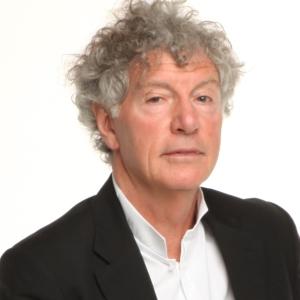We would like to invite all interested parties to participate in a lecture on “How Democracies Die, Fast and Slow” presented by Professor John Keane, leading political theorist on democracy and Professor of Politics at the University of Sydney.
Democracies are capable to destroy themselves
Professor John Keane is a renowned historian and political scientist, and an author of numerous books on democracy. In his lecture on "How Democracies Die, Fast and Slow" he proposes a different way of thinking about a basic question first posed by the skeptics and anti-democrats of the classical Greek world: why is it that the political form known as democracy is often so vulnerable to efforts by democrats and anti-democrats alike to destroy it? Pro. Keane notes that social scientists concerned with the subject of democide have typically relied upon two types of explanations: the death of democracy is either seen as a sudden cataclysm (as in a military coup d’état), or it is viewed as the result of numerous processes that unfold more gradually through protracted accumulations of high-level political grievances and knife-edged maneuverings.
The key thought of Prof. Keane's lecture is that these "institutionalist" narrowly state-centered accounts of democide belong to the same paradigm, to a mode of thinking that is of declining relevance and incapable of grasping how democracies can be gradually destroyed by social deprivation and environmental ignorance and decay.
The argument is that democracy is a whole way of life whose delicate geo-social foundations are of prime explanatory importance. Democracy dies a slow-motion death not only when citizens suffer domestic violence, poor health care, religious and racial bigotry or daily shortages of food and housing. Democracies also destroy themselves when they give themselves over to a "great derangement" (The Great Derangement: Climate Change and the Unthinkable is a 2016 non-fiction book by Indian writer Amitav Ghosh), to the thoughtlessness that prevents them from seeing that extreme weather events, pestilences, and other environmental emergencies breed power grabs and that democracy will have no future unless its ideals and practices are rid of the deep-seated prejudice that "humans" live outside a "nature" whose dynamics are administratively controllable and commercially exploitable for the use and enjoyment of "the people."
The lecture will be held in English.
Please note that this is a hybrid event. We would love for you to attend in person if you can. However, the online option provided by the Institute of Philosophy and Sociology of the Polish Academy of Sciences allows for remote participation.
-
Opening and Welcome
Professor Andrzej Rychard, Institute of Philosophy and Sociology of the Polish Academy of Sciences
-
Guest Speaker Introduction
Professor Radosław Markowski, Head of the Center for the Study of Democracy at SWPS University
-
How Democracies Die, Fast and Slow
Professor John Keane
-
Panel Discussion with Audience Participation
Moderator: Professor Radosław Markowski
Lecturer

John Keane
Professor
Is Professor of Politics at the University of Sydney and the WZB Berlin Social Science Center. He is currently teaching at Beijing Foreign Studies University. Professor Keane is renowned globally for his creative thinking about politics, history, media, and democracy. He authored numerous books, including the best-selling Tom Paine: A Political Life (1995), The Life and Death of Democracy (2009), Democracy and Media Decadence (2013), When Trees Fall, Monkeys Scatter (2017), Power and Humility (2018) and The New Despotism (2020). He has contributed to various world newspapers, including The New York Times, Al Jazeera, Times Literary Supplement, Financial Times, The Guardian, Die Zeit, Hindustan Times, and South China Morning Post. He was recently ranked by El País (the second most circulated daily newspaper in Spain) as "one of the greatest theorists of political systems." During the time he lived in Britain, The Times (a major British daily newspaper based in London) has ranked him as one of the country’s leading political thinkers and writers whose work is of "worldwide importance." The Australian Broadcasting Corporation (ABC) referred to him as "one of Australia’s great intellectual exports." He was nominated for the 2021 Balzan Prize (Italy) and the Holberg Prize (Norway) for outstanding global contributions to the human sciences. His latest book, The Shortest History of Democracy (2022), has been published in 15 languages.
Organizers
The Center for the Study of Democracy at SWPS University undertakes research into theories and models of democracy, the quality of democracy, civic and political participation, democratic innovation, social movements, and political views and opinions. It cooperates with numerous research institutes in Poland and abroad, and also with non-governmental organisations. Aside from its academic objectives, the work of the Center is dedicated to identifying those good practices which improve the functioning of the public sphere.
The Institute of Philosophy and Sociology is one of the research centers of the Polish Academy of Sciences (a national academic institution). The Institute’s main goal is to carry out advanced research in philosophy and sociology as well as in cognitive and communication fields. Apart from its research activity, the Institute is also engaged in education, publishing, and popularisation of science.
The European Social Survey (ESS) is an academically driven cross-national survey that has been conducted across Europe since 2001. The survey measures the attitudes, beliefs, and behaviour patterns of diverse populations in more than thirty nations. The ESS aims to provide high quality data measuring change (and stability) over time within and between European countries in their living conditions, social structure, public opinion and attitudes.
Contact
Natalia Skipietrow
E-mail: This email address is being protected from spambots. You need JavaScript enabled to view it.
Date and Location
October 11, 2022 16:00–18:00 CEST (UTC +2)
Staszic Palace (Pałac Staszica), Nowy Świat 72, Warsaw; Round Table Hall (1st floor / no 162